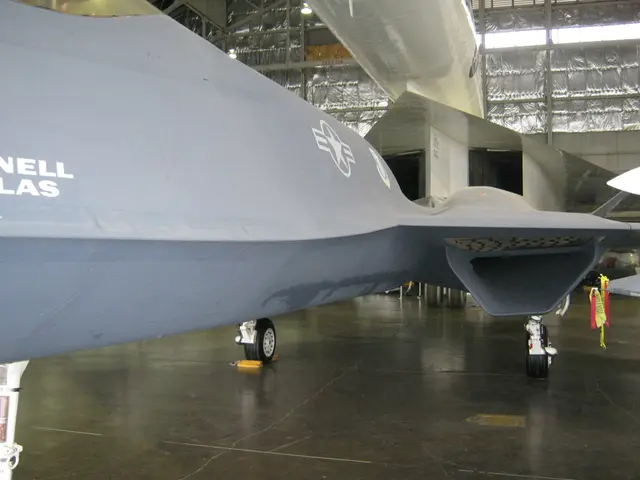Business operations between Washington and Beijing can now proceed following the ceasefire agreement
In the bustling city of Canton, China, the warehouse at Weijiang International Logistics Company hums with activity once again. After a significant drop in parcel shipments following the implementation of U.S. tariffs in January, the truce declared in May has allowed the company to resume its normal pace.
For one of its workers, Mr. Shuai Hang, the tariffs have had a direct impact on his daily life and income. Mr. Shuai, who has been working at Weijiang International for a year, has seen his monthly salary, which once exceeded 10,000 yuan, decrease by a third due to tariffs.
Despite the challenges, Mr. Shuai remains hopeful about his future at the warehouse. He prefers the less physically demanding work here compared to construction sites, a fact he attests to from his previous experience. Now, dishes and clothing are once again filling trucks at the company, notably for online retail giant Temu.
The truce has not completely erased tariffs, as Mr. Shuai points out. However, the resumption of shipments has brought a sense of relief to the warehouse, with three to four tons of goods being loaded into trucks each day.
Manager Chen Weiyan is optimistic about the company's future in the market. He states, "We won't abandon this market. Americans need our products." The company has recently invested in a warehouse in Chicago, U.S., due to commerce uncertainty, a move that underscores its commitment to the market.
According to Mr. Chen, around 30% of the parcels transported by Weijiang International end up in another warehouse owned by PDD, the parent company of Temu platform. The approach of the first 90-day tariff truce's end did not cause concern for the company's founder, Xiong Wei, as he was certain it would be extended.
The truce could potentially lead to increased shipment volumes for Weijiang International, given that the U.S. accounts for about a quarter of its overseas shipments. This increased activity might enable the company to invest more in infrastructure, technology, or expansion to handle higher capacity. With better financial performance, the company might also be able to raise employees' salaries or improve benefits by passing some gains to its workforce.
However, without specific data or company disclosures about Weijiang International Logistics, these remain reasoned inferences rather than confirmed facts. For precise details, it is recommended to check official company reports, trade publications focused on Canton’s logistics sector, or government trade announcements about the tariff policies and their impacts on local businesses.
As the tariff truce continues, the workers at Weijiang International Logistics, including Mr. Shuai, will be closely watching the developments, hoping for a sustained period of growth and stability.
Mr. Shuai is optimistic that the increased shipment volumes resulting from the tariff truce might allow Weijiang International to invest more in infrastructure, technology, and expansion, potentially leading to better financial performance, which could enable them to raise employees' salaries or improve benefits.
Manager Chen is hopeful that the resumption of shipments following the tariff truce could lead to growth and stability for the company in the transportation industry, as they continue to expand their business and finance operations, with a new warehouse in Chicago, U.S.




